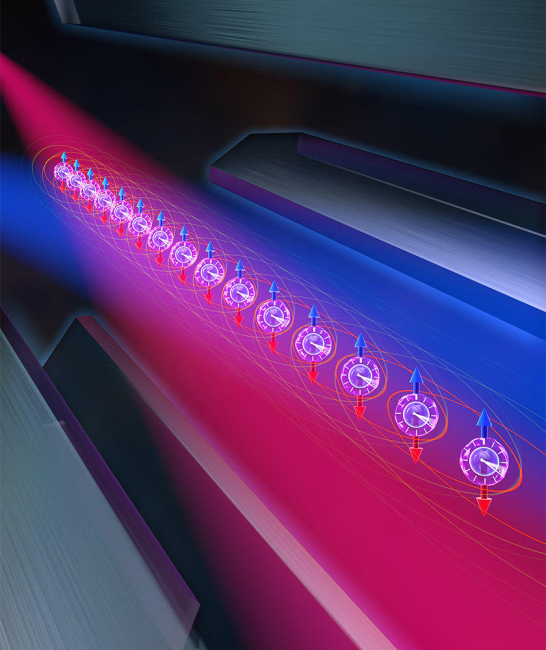Quantum-enhanced sensing on optical transitions through finite-range interactions
| Author | |
|---|---|
| Abstract |
The control over quantum states in atomic systems has led to the most precise optical atomic clocks so far. Their sensitivity is bounded at present by the standard quantum limit, a fundamental floor set by quantum mechanics for uncorrelated particles, which can—nevertheless—be overcome when operated with entangled particles. Yet demonstrating a quantum advantage in real-world sensors is extremely challenging. |
| Year of Publication |
2023
|
| Date Published |
2023-08
|
| Journal Title |
Nature
|
| Volume |
621
|
| Start Page or Article ID |
740
|
| DOI | |
| Download citation | |
| JILA PI | |
| Associated Institutes | |
Journal Article
|
|
| JILA Topics | |
| Publication Status | |
| Publication Image |

|


 The Physics Frontiers Centers (PFC) program supports university-based centers and institutes where the collective efforts of a larger group of individuals can enable transformational advances in the most promising research areas. The program is designed to foster major breakthroughs at the intellectual frontiers of physics by providing needed resources such as combinations of talents, skills, disciplines, and/or specialized infrastructure, not usually available to individual investigators or small groups, in an environment in which the collective efforts of the larger group can be shown to be seminal to promoting significant progress in the science and the education of students. PFCs also include creative, substantive activities aimed at enhancing education, broadening participation of traditionally underrepresented groups, and outreach to the scientific community and general public.
The Physics Frontiers Centers (PFC) program supports university-based centers and institutes where the collective efforts of a larger group of individuals can enable transformational advances in the most promising research areas. The program is designed to foster major breakthroughs at the intellectual frontiers of physics by providing needed resources such as combinations of talents, skills, disciplines, and/or specialized infrastructure, not usually available to individual investigators or small groups, in an environment in which the collective efforts of the larger group can be shown to be seminal to promoting significant progress in the science and the education of students. PFCs also include creative, substantive activities aimed at enhancing education, broadening participation of traditionally underrepresented groups, and outreach to the scientific community and general public.